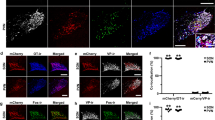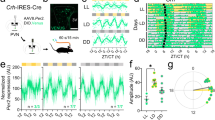Abstract
The neurohypophysis not only contains the nerve endings of the oxytocin- and vasopressin-secreting neurones of the hypothalamus, but also receives both dopamine1- and opiate peptide2,3-containing nerve fibres. This secondary innervation may regulate hormone secretion at the level of the nerve terminals by an action analogous to presynaptic inhibition4. Electrical stimulation of the isolated neurohypophysis releases oxytocin and vasopressin in amounts readily detectable by radio-immunoassay, and presumably also releases dopamine5 and endogenous opiates. If these neurosecretory products are indeed regulators of hormone release, then specific antagonists to dopamine and opiates should modify the electrically stimulated release of hormone. We report here that the dopamine antagonist spiperone does not affect the release of either oxytocin or vasopressin from the isolated rat neurohypophysis. In contrast, the opiate antagonist naloxone markedly enhances the electrical stimulation of oxytocin release, but has no effect on vasopressin release. Thus an endogenous opiate, released by electrical stimulation of the isolated neurohypophysis, inhibits the release of oxytocin, but this opiate control does not appear to be exerted on the vasopressin-secreting terminals. We have not found similar evidence that endogenous neuro-hypophysial dopamine regulates hormone release.
This is a preview of subscription content, access via your institution
Access options
Subscribe to this journal
Receive 51 print issues and online access
$199.00 per year
only $3.90 per issue
Buy this article
- Purchase on Springer Link
- Instant access to full article PDF
Prices may be subject to local taxes which are calculated during checkout
Similar content being viewed by others
References
Baumgarten, H. G. et al. Z. Zellforsch. mikrosk. Anat. 126, 483–517 (1972).
Rossier, J. et al. Nature 277, 653–655 (1979).
Watson, S. J. et al. Proc. natn. Acad. Sci. U.S.A. 78, 1260–1263 (1981).
Clarke, G. et al. Nature 282, 746–748 (1979).
Sharman, D. F., Holzer, P. & Holzbauer, M. Neuroendocrinology 34, 175–179 (1982).
Bicknell, R. J., Chapman, C. & Leng, G. J. neurosci. Meth. 5, 95–101 (1982).
Sheldrick, E. L. & Flint, A. P. F. Prostaglandins 22, 631–636 (1981).
Moore, G. et al. Endocrinology 101, 1421–1435 (1977).
Lightman, S. L., Iversen, L. L. & Forsling, M. L. J. Neurosci. (in the press).
Iversen, L. L., Iversen, S. D. & Bloom, F. E. Nature 284, 350–351 (1980).
Clarke, G., Lincoln, D. W. & Merrick, L. P. J. Endocr. 83, 409–420 (1979).
Creese, I., Schneider, R. & Snyder, S. H. Eur. J. Pharmac. 46, 377–381 (1977).
Author information
Authors and Affiliations
Rights and permissions
About this article
Cite this article
Bicknell, R., Leng, G. Endogenous opiates regulate oxytocin but not vasopressin secretion from the neurohypophysis. Nature 298, 161–162 (1982). https://doi.org/10.1038/298161a0
Received:
Accepted:
Issue Date:
DOI: https://doi.org/10.1038/298161a0
This article is cited by
-
The neurobiology of attachment
Nature Reviews Neuroscience (2001)
-
Naloxone potentiates the release of oxytocin induced by systemic administration of cholecystokinin without enhancing the electrical activity of supraoptic oxytocin neurones
Experimental Brain Research (1992)
-
Coexisting peptides in hypothalamic neuroendocrine systems: Some functional implications
Cellular and Molecular Neurobiology (1989)
-
The effects of beta-endorphin on arginine-8-vasopressin and oxytocin levels in rat brain areas
Experientia (1989)
Comments
By submitting a comment you agree to abide by our Terms and Community Guidelines. If you find something abusive or that does not comply with our terms or guidelines please flag it as inappropriate.



